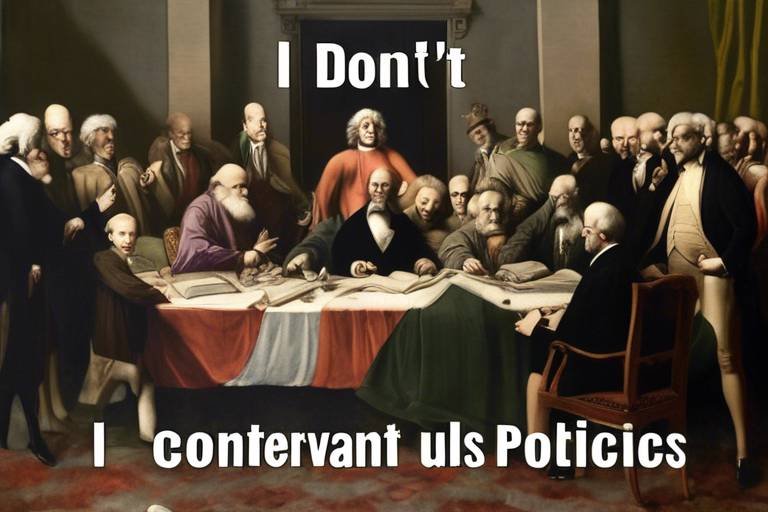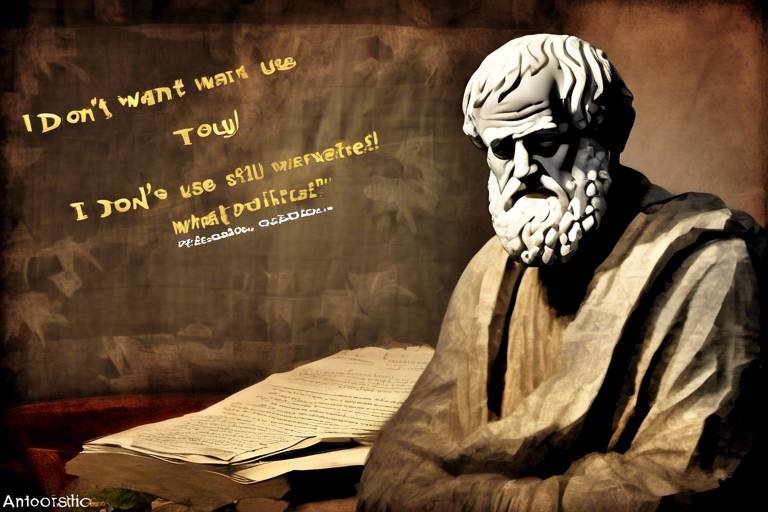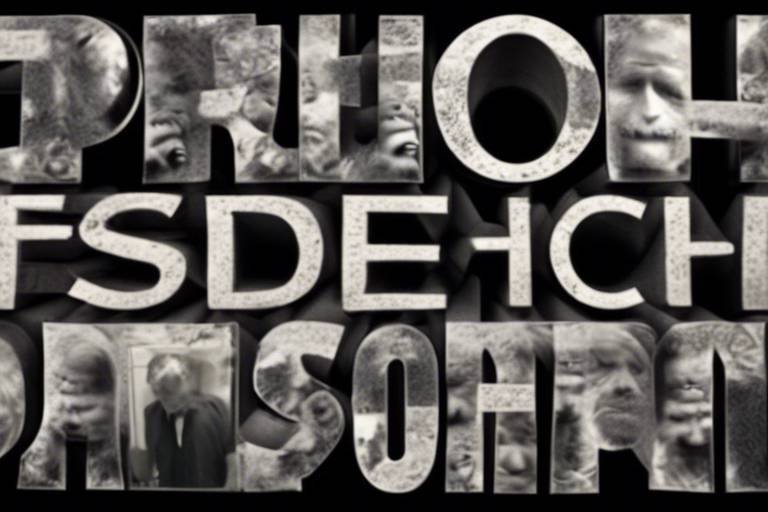Internet - A New Frontier for Political Philosophy?
The internet has ushered in a new era, transforming not just how we communicate, but also how we think about and engage with politics. It's like stepping into a vast digital landscape where ideas flow freely, and every voice has the potential to be heard. This shift has profound implications for political philosophy, challenging long-held beliefs about governance, democracy, and public discourse. In this brave new world, the traditional barriers that once confined political engagement are crumbling, giving rise to a more participatory and dynamic political environment.
Think about it: the internet is a double-edged sword. On one side, it offers incredible opportunities for democratic participation. Citizens can now engage with political content, share opinions, and mobilize for causes they believe in with just a few clicks. It's like having a megaphone that can reach millions, regardless of geographical boundaries. However, this newfound power comes with its own set of challenges. Issues such as misinformation, echo chambers, and digital divides complicate the political landscape. It raises the question: can we harness the internet's potential for good, or will it lead us down a path of division and chaos?
As we delve deeper, we find that the internet has not only changed the way we communicate but also how we define our identities in the political sphere. In the past, political identity was often shaped by geographical location or social class. Today, it is increasingly influenced by online interactions and digital communities. This shift prompts a reevaluation of what it means to be politically engaged in a globalized world. Are we more connected than ever, or are we simply creating new forms of isolation?
Moreover, the internet has become a breeding ground for grassroots movements. From the Arab Spring to Black Lives Matter, social media has played a crucial role in organizing protests and raising awareness about critical issues. The power of a simple hashtag can mobilize thousands and create a sense of urgency that traditional media often fails to capture. But with this power comes responsibility. How do we ensure that these movements are not co-opted or diluted by larger political agendas?
In conclusion, the internet stands as a pivotal force in reshaping political philosophy. It challenges us to rethink our assumptions about democracy, governance, and civic engagement. As we navigate this new frontier, it is essential to remain vigilant and proactive, ensuring that the digital realm serves as a space for genuine dialogue and democratic participation.
- How has the internet changed political philosophy?
The internet has made political engagement more accessible, allowing for diverse voices and ideas to emerge, while also complicating traditional notions of governance and democracy. - What are the challenges of digital democracy?
Challenges include misinformation, digital divides, and the potential for echo chambers that can polarize political opinions. - Can online activism be effective?
Yes, online activism has proven to be a powerful tool for mobilizing support and raising awareness about social issues, as seen in various successful campaigns. - What ethical concerns arise from online political engagement?
Concerns include data privacy, the manipulation of public sentiment, and the responsibilities of tech companies in regulating political content.
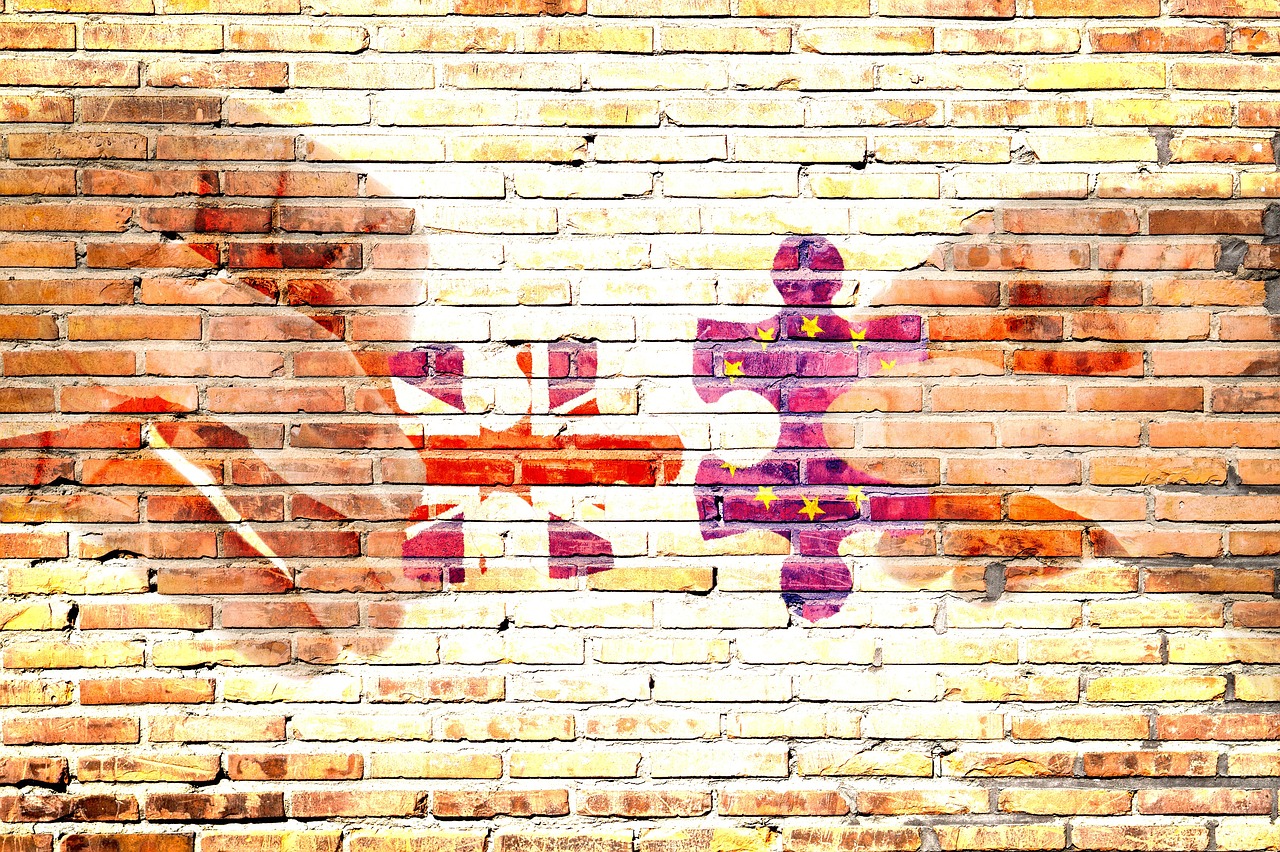
The Role of Social Media in Political Discourse
Social media has become a game-changer in the realm of political discourse, reshaping how we engage with ideas and each other. Gone are the days when political opinions were confined to the pages of newspapers or the airwaves of television. Now, with just a few taps on a smartphone, anyone can voice their thoughts, share articles, or rally support for a cause. This democratization of information has empowered individuals and grassroots movements like never before.
Platforms like Twitter, Facebook, and Instagram have transformed the landscape of political communication. They allow for rapid dissemination of information, enabling news to break in real-time and sparking conversations that can reach millions within seconds. Imagine a world where a single tweet can ignite a movement; that's the power of social media! It gives a voice to the voiceless and creates a platform for those who might otherwise be marginalized in traditional media.
However, this newfound freedom comes with its own set of challenges. The speed at which information travels can lead to the spread of misinformation and fake news, complicating public understanding of critical issues. For instance, during election seasons, social media can amplify misleading narratives, creating confusion and distrust among voters. The challenge lies in discerning fact from fiction in an ocean of content.
Moreover, social media has facilitated the rise of echo chambers, where users are exposed primarily to information that aligns with their pre-existing beliefs. This phenomenon can deepen political polarization, as individuals become less willing to engage with opposing viewpoints. It's like shouting into a void; you hear only what you want to hear, further entrenching your beliefs.
Despite these challenges, the role of social media in political discourse cannot be understated. It has become a vital tool for mobilization and activism. From the Arab Spring to the Black Lives Matter movement, social media has played a pivotal role in organizing protests, sharing experiences, and fostering a sense of community among activists. The hashtag, for example, has emerged as a powerful tool for raising awareness and fostering solidarity. Hashtags like #MeToo and #ClimateStrike have transcended borders, connecting individuals across the globe in shared causes.
In summary, social media is a double-edged sword in political discourse. While it provides unprecedented opportunities for engagement and activism, it also poses significant challenges that can undermine the integrity of public discourse. As we navigate this new frontier, it’s essential to cultivate media literacy and critical thinking skills to ensure that we harness the power of social media responsibly and effectively.
- How does social media influence political opinions? Social media shapes political opinions by facilitating the rapid spread of information and enabling users to engage with diverse viewpoints, though it can also create echo chambers.
- What are the risks associated with misinformation on social media? Misinformation can lead to confusion, distrust in institutions, and misguided political actions, especially during critical events like elections.
- Can social media be a force for positive change? Absolutely! Social media has been instrumental in mobilizing movements and raising awareness about important social issues, fostering community and solidarity.

Digital Democracy: Opportunities and Challenges
The internet has ushered in a new era of democratic engagement, transforming how individuals participate in political processes. This digital democracy is not just a buzzword; it's a profound shift that offers both exciting opportunities and daunting challenges. Picture this: a world where a single tweet can mobilize thousands for a cause, or where online petitions can lead to real legislative change. It’s exhilarating, isn’t it? However, with great power comes great responsibility, and the digital landscape is fraught with pitfalls that can undermine these democratic ideals.
One of the most significant opportunities presented by digital democracy is the ability to engage a broader audience. Traditionally, political discourse was often limited to those with access to traditional media or who could attend town halls. Now, anyone with an internet connection can participate in discussions, share their views, and influence public opinion. This democratization of information allows for a more inclusive dialogue, where diverse voices can be heard. For instance, grassroots movements can now leverage social media platforms to rally support, organize events, and spread their message far and wide.
However, the flip side of this coin is the prevalence of misinformation. In the digital age, the spread of false information can happen at lightning speed, often outpacing the efforts to debunk it. Social media algorithms prioritize engagement, which can lead to sensationalist content being shared more widely than factual reporting. This creates an environment where public opinion can be swayed by misleading narratives, ultimately undermining the democratic process. To illustrate this point, consider the following table that highlights the potential impacts of misinformation on public perception:
| Type of Misinformation | Impact on Public Perception |
|---|---|
| Fake News | Can lead to widespread misconceptions about policies or candidates. |
| Deepfakes | Can damage reputations and distort reality, making it hard to discern truth from fiction. |
| Manipulated Statistics | Can mislead voters and skew public opinion on critical issues. |
Another challenge in the realm of digital democracy is the digital divide. While the internet has the potential to empower many, it also highlights disparities in access to technology. Not everyone has equal access to the internet or digital literacy, which can marginalize certain groups from political engagement. This divide can perpetuate existing inequalities, making it essential for policymakers to consider how to bridge this gap. Without addressing these disparities, the promise of a fully participatory digital democracy remains unfulfilled.
Moreover, the nature of online engagement can sometimes lead to a disconnection from traditional forms of civic participation. While online petitions and social media activism are valuable, they can create a false sense of accomplishment. People might feel that liking a post or sharing a hashtag is enough to enact change, leading to what some call “slacktivism.” This phenomenon raises questions about the effectiveness of online engagement compared to more traditional methods of activism.
Despite these challenges, the potential for positive change through digital democracy is immense. As we navigate this evolving landscape, it’s crucial to cultivate a culture of critical thinking and media literacy. Educating individuals on how to discern credible sources from unreliable ones can empower citizens to make informed decisions. Furthermore, fostering collaborations between tech companies, governments, and civil society can help create a more equitable digital space that champions democratic values.
In conclusion, while digital democracy offers unprecedented opportunities for participation and engagement, it is not without its challenges. The interplay of misinformation, the digital divide, and the nuances of online activism must be carefully navigated to realize the full potential of democratic engagement in the digital age.
- What is digital democracy? Digital democracy refers to the use of digital technology to enhance democratic processes, enabling broader participation and engagement.
- What are the main challenges of digital democracy? Key challenges include misinformation, digital divides, and the risk of slacktivism, where online actions replace more substantive civic engagement.
- How can individuals contribute to digital democracy? Individuals can contribute by being informed, critically evaluating sources, and actively participating in online discussions and campaigns.
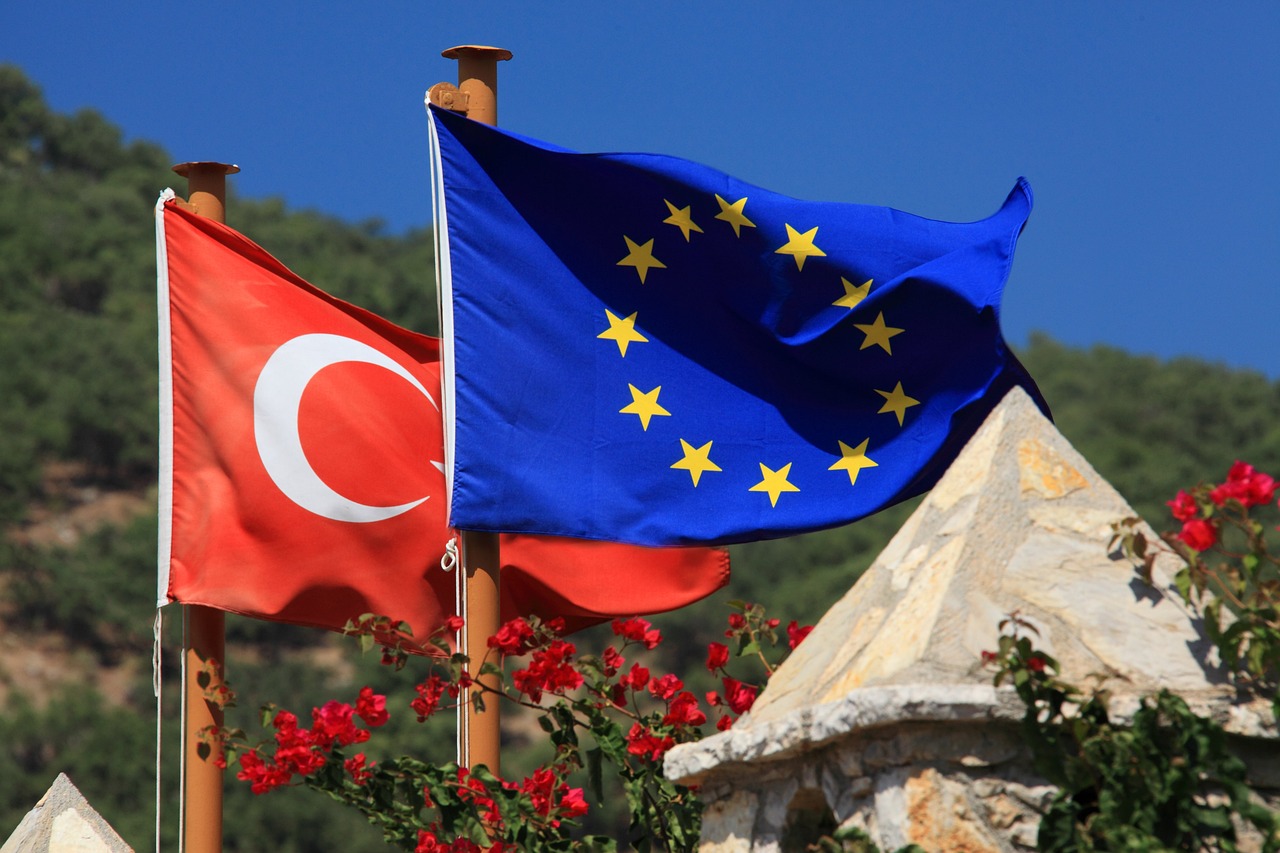
Online Activism and Social Movements
In today's digital landscape, online activism has emerged as a powerful force, reshaping the way social movements gain traction and mobilize support. The internet, particularly through social media platforms, has become a vibrant arena where voices that were once marginalized can now be amplified. Imagine a world where a single tweet can spark a global movement; that’s the reality we live in today. The accessibility of online platforms has democratized activism, making it possible for anyone with an internet connection to rally support for causes they believe in.
One of the most significant aspects of online activism is its ability to create a sense of urgency and community among activists around the world. For example, hashtags like #BlackLivesMatter and #MeToo have not only raised awareness but have also fostered a sense of belonging among individuals who share similar experiences and struggles. These hashtags act as digital rallying cries, uniting people across geographical boundaries and encouraging them to take action. The impact of such movements is profound, as they challenge traditional power structures and demand accountability from those in authority.
Moreover, online activism has transformed the way protests are organized. Gone are the days when grassroots movements relied solely on flyers and word-of-mouth to spread the word. Now, a single post on social media can mobilize thousands within hours. This rapid mobilization is not just a testament to the power of technology but also highlights the changing dynamics of political engagement. Activists can now share resources, coordinate events, and provide real-time updates, all of which enhance the effectiveness of their efforts.
However, the rise of online activism is not without its challenges. The internet can be a double-edged sword; while it provides a platform for voices to be heard, it also exposes activists to risks such as online harassment and surveillance. Furthermore, the very tools that empower movements can also be manipulated. For instance, misinformation can spread just as quickly as legitimate information, which can undermine the goals of social movements. Therefore, it is essential for activists to navigate the digital landscape wisely, utilizing strategies that not only amplify their message but also safeguard their communities.
In conclusion, online activism and social movements represent a new frontier in political engagement, where technology plays a crucial role in shaping discourse and driving change. As we continue to explore the potential of digital platforms, it is essential to recognize both the opportunities and challenges they present. The future of activism will likely depend on how effectively we can harness these tools to create inclusive, informed, and impactful movements.
- What is online activism?
Online activism refers to the use of digital platforms, especially social media, to promote social or political causes. - How has the internet changed social movements?
The internet has made it easier for social movements to organize, mobilize support, and reach a global audience. - What are some risks associated with online activism?
Risks include online harassment, misinformation, and potential surveillance by authorities.
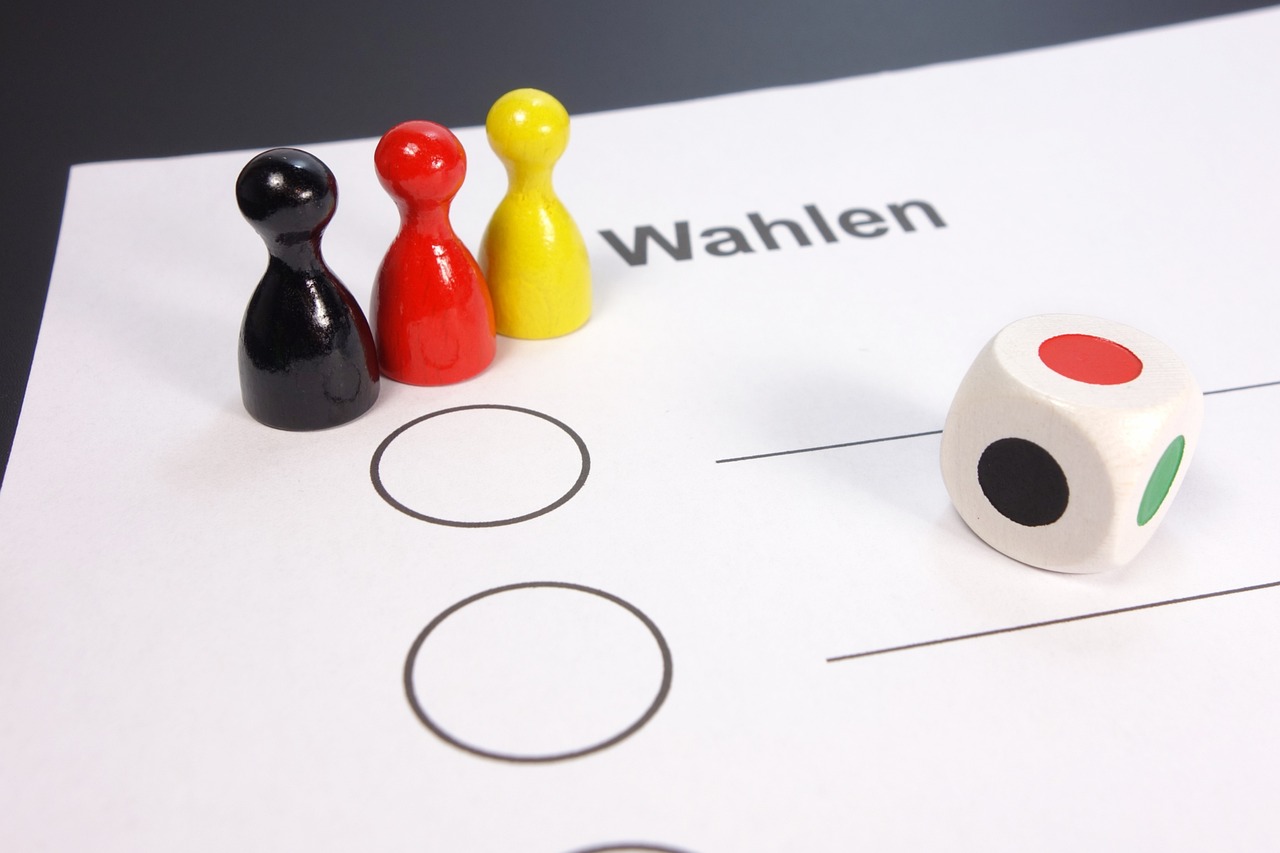
The Impact of Hashtags on Political Mobilization
Hashtags have become the modern-day rallying cries of the digital age, serving as powerful tools for **political mobilization**. Imagine a world where a simple phrase, preceded by the '#' symbol, can ignite a movement, connect like-minded individuals, and amplify voices that were once marginalized. This is the magic of hashtags! They transcend geographical boundaries and create a global conversation, allowing anyone with internet access to join in. For instance, consider the hashtag #BlackLivesMatter, which has not only raised awareness about systemic racism but has also mobilized protests across continents. Isn't it fascinating how a few characters can foster such unity and urgency?
When we look at the mechanics behind hashtags, it’s clear they serve multiple purposes in political activism. They act as **signposts** that guide users to relevant content, making it easier for individuals to find and engage with discussions that matter to them. Furthermore, hashtags can help establish a sense of **community** among activists. By using the same hashtag, individuals feel a sense of belonging and shared purpose, which can be incredibly empowering. This communal aspect is crucial when mobilizing support for causes, as it fosters a collective identity among participants.
Moreover, hashtags are instrumental in creating a sense of urgency. When a hashtag trends, it signifies that a topic is gaining traction and that people are paying attention. This can lead to rapid mobilization of protests and campaigns, as seen with the #MeToo movement, where individuals shared their stories and experiences, creating a tidal wave of support and awareness. But it's not just about awareness; hashtags can also serve as a call to action. For example, during the Arab Spring, hashtags like #Jan25 became synonymous with protests, urging citizens to take to the streets and demand change.
However, while hashtags can unify and mobilize, they can also lead to **superficial engagement**. The phenomenon of “slacktivism” arises when individuals support a cause merely by retweeting or liking a post without taking any substantial action. This raises the question: Are hashtags truly effective in driving meaningful change, or do they merely create an illusion of activism? It's a double-edged sword that activists must navigate carefully.
In summary, the impact of hashtags on political mobilization is profound and multifaceted. They have the power to connect, unify, and inspire action, making them indispensable tools in modern activism. Yet, as we celebrate their potential, we must also remain vigilant about the challenges they pose. The digital landscape is ever-evolving, and hashtags will continue to play a critical role in shaping political discourse and mobilizing communities around the globe.
- What is the role of hashtags in political movements?
Hashtags help to organize, unify, and amplify messages within political movements, allowing individuals to connect and mobilize around shared causes. - Can hashtags lead to real-world change?
Yes, hashtags can catalyze real-world action by raising awareness, organizing events, and fostering community engagement. - What are the downsides of using hashtags in activism?
While hashtags can promote awareness, they can also lead to slacktivism, where individuals feel they have contributed simply by sharing online without taking further action.

Case Studies of Successful Online Campaigns
In the ever-evolving landscape of political engagement, online campaigns have emerged as a formidable force, wielding the power to mobilize communities and influence public policy like never before. One shining example is the Ice Bucket Challenge, which not only raised awareness for ALS but also generated over $115 million for research. Participants filmed themselves dumping ice water over their heads and challenged others to do the same, creating a viral sensation that spread across social media platforms. This campaign demonstrated how a simple act, amplified by the internet, could lead to significant financial contributions and heightened awareness of a critical health issue.
Another noteworthy case is the Black Lives Matter movement, which harnessed the power of social media to mobilize protests and discussions around systemic racism and police brutality. What started as a hashtag in response to the acquittal of George Zimmerman in the shooting of Trayvon Martin has evolved into a global movement. The use of platforms like Twitter and Instagram has allowed activists to share their stories, organize protests, and connect with supporters worldwide, creating a sense of urgency and solidarity that transcends geographical boundaries.
These campaigns exemplify the effectiveness of digital tools in driving social and political change. However, they also highlight the necessity of strategic planning and engagement. For instance, the success of the Me Too movement can be attributed to its grassroots approach, encouraging individuals to share their experiences with sexual harassment and assault. This campaign not only empowered countless individuals to speak out but also prompted significant discussions around workplace policies and accountability. The viral nature of the hashtag allowed for widespread visibility, leading to tangible changes in various industries.
To better understand the impact of these campaigns, we can summarize their key elements in the following table:
| Campaign Name | Key Strategies | Impact |
|---|---|---|
| Ice Bucket Challenge | Viral social media participation, challenge format | Raised over $115 million for ALS research |
| Black Lives Matter | Hashtag activism, grassroots organizing | Global awareness and mobilization against systemic racism |
| Me Too | Personal storytelling, community support | Increased awareness of sexual harassment and policy changes |
These case studies illustrate how online campaigns can resonate deeply with audiences, leveraging the interconnectedness of the digital age to foster community and drive action. They remind us that in a world where information travels at the speed of light, the potential for change is just a click away. As we navigate this new frontier of political philosophy, it’s essential to recognize the power of these digital movements and the profound impact they can have on society.
- What makes online campaigns successful? Successful online campaigns often utilize viral content, engage communities, and encourage participation through relatable messaging.
- How do hashtags influence political movements? Hashtags can unify discussions, increase visibility, and mobilize supporters around a common cause, making them powerful tools in activism.
- What are the challenges of online activism? Challenges include misinformation, digital divides, and the potential for echo chambers, which can hinder constructive dialogue.

The Influence of Algorithms on Political Opinions
The digital age has ushered in an era where algorithms dictate much of the information we consume. Imagine waking up every day to a personalized news feed, curated just for you. Sounds convenient, right? However, this convenience comes with a hefty price tag—our political opinions. Algorithms, designed to enhance user engagement, often prioritize content that aligns with our existing beliefs, creating a cozy echo chamber that can distort our understanding of reality.
Consider this: when you scroll through your social media feed, what do you see? Posts that resonate with your views or challenge your beliefs are often sidelined. This selective exposure can lead to a phenomenon known as confirmation bias, where individuals only seek out information that confirms their preconceived notions. As a result, political polarization becomes more pronounced, making it increasingly challenging to engage in constructive dialogue. The implications are profound—our ability to empathize with opposing viewpoints is diminished, and the democratic discourse we once took for granted starts to fray at the edges.
Moreover, algorithms don’t just shape the content we see; they also influence the very nature of our political engagement. For instance, social media platforms often amplify sensational content because it garners more clicks and shares. This can lead to the spread of misinformation, as users are more likely to engage with emotionally charged posts rather than fact-based articles. The table below illustrates how different types of content perform on social media platforms:
| Content Type | Engagement Level | Impact on Political Opinions |
|---|---|---|
| Fact-based Articles | Low | Promotes informed discussions |
| Emotionally Charged Posts | High | Increases polarization |
| Viral Memes | Very High | Simplifies complex issues |
This dynamic raises critical questions about the ethical responsibilities of tech companies. Are they merely neutral platforms, or do they have a duty to ensure that users are exposed to a variety of viewpoints? As algorithms continue to evolve, the challenge lies in balancing user engagement with the promotion of a healthy democratic discourse.
In conclusion, while algorithms have the potential to enhance our online experience, they also pose significant risks to our political opinions and engagement. As we navigate this complex landscape, it is essential to remain vigilant and critically assess the information we consume. After all, in a world increasingly shaped by technology, our ability to engage with diverse perspectives may well determine the future of our political landscape.
- What are algorithms? Algorithms are sets of rules or calculations used by computer systems to process data and make decisions.
- How do algorithms affect political opinions? They curate the content we see online, often reinforcing our existing beliefs and contributing to polarization.
- Can we escape the influence of algorithms? While challenging, being aware of how algorithms work and actively seeking diverse sources of information can help mitigate their influence.

The Ethics of Online Political Engagement
As we delve deeper into the digital age, the ethics of online political engagement has emerged as a critical topic of discussion. The internet has transformed how we interact with politics, but with this transformation comes a host of ethical dilemmas that we can no longer afford to ignore. One of the most pressing concerns is data privacy. With political campaigns increasingly relying on personal data to target voters, individuals often find themselves at the mercy of algorithms that exploit their online behavior.
Imagine walking into a store where every item is tailored to your preferences, but you never consented to have your shopping habits monitored. This is akin to how many feel about political advertising today. The use of personal data raises significant questions about privacy rights. It’s essential to ask ourselves: Are we comfortable with our personal information being used without our explicit consent? The ethics of micro-targeting voters based on their online activities is a slippery slope, leading to a lack of transparency and potential manipulation of public sentiment.
Moreover, the responsibility of tech companies in this equation cannot be overstated. Companies like Facebook and Google wield immense power over the political discourse landscape. They regulate what content is visible, shaping the narratives that dominate public conversation. This brings us to another ethical concern: the responsibility of tech platforms. Should these companies act as gatekeepers of political content, or should they allow all voices to be heard, regardless of the potential for misinformation? The balance between fostering open dialogue and preventing harmful content is a tightrope walk that requires careful consideration.
One way to understand these ethical issues is by examining the implications of targeted political messaging. While it can lead to more relevant content for users, it can also create echo chambers where individuals are only exposed to viewpoints that reinforce their existing beliefs. This polarization can hinder constructive dialogue and compromise the integrity of democratic processes. As we navigate this complex landscape, it’s vital to consider the broader implications of our online political engagement.
To further illustrate these ethical dilemmas, let’s look at a table that summarizes the key ethical concerns surrounding online political engagement:
| Ethical Concern | Description |
|---|---|
| Data Privacy | The use of personal data without explicit consent for political advertising. |
| Manipulation of Public Sentiment | Targeted messaging can distort public opinion and influence voter behavior. |
| Responsibility of Tech Companies | The role of platforms in regulating political content and ensuring fair discourse. |
| Echo Chambers | Exposure to only like-minded views can polarize opinions and stifle debate. |
Ultimately, the ethics of online political engagement is a multifaceted issue that requires ongoing dialogue and reflection. As individuals, we must remain vigilant about our digital footprints and the implications of our online interactions. Are we contributing to a healthy political discourse, or are we inadvertently fueling division and misinformation? The answers to these questions will shape the future of political engagement in the digital age.
- What is micro-targeting in political advertising?
Micro-targeting refers to the practice of using personal data to tailor political messages to specific individuals or groups, often based on their online behavior.
- How can I protect my data from being used in political campaigns?
You can protect your data by adjusting privacy settings on social media platforms, being cautious about the information you share online, and using privacy-focused browsers or tools.
- What responsibilities do tech companies have in political discourse?
Tech companies should ensure transparency in their algorithms, prevent the spread of misinformation, and promote fair access to political content for all users.

Data Privacy and Political Advertising
In today's digital landscape, the intersection of data privacy and political advertising is a hot topic that raises numerous questions and concerns. With the rise of targeted ads on social media platforms, political campaigns can now reach specific demographics with laser-like precision. But at what cost? The use of personal data has transformed the way politicians communicate with voters, leading to a new era of political engagement that is both effective and ethically ambiguous.
Consider this: every time you scroll through your social media feed, algorithms are at work, analyzing your behavior, preferences, and even your connections. This data is then used to craft messages that resonate with you personally. While this can enhance engagement, it also raises significant privacy concerns. Are we comfortable with our personal information being utilized to influence our political choices? The answer isn't simple, and it varies from person to person.
Political advertising has evolved from traditional methods like billboards and TV commercials to sophisticated digital campaigns that leverage big data. This shift has made it easier for campaigns to micro-target voters based on their online behavior. For instance, a campaign might use data analytics to identify voters who are concerned about climate change and then tailor ads that speak directly to those concerns. While this approach can lead to increased voter engagement, it also poses ethical dilemmas regarding consent and transparency.
To illustrate the impact of data privacy on political advertising, let's take a look at a few key points:
- Informed Consent: Many users are unaware of how their data is collected and used. Are they truly giving informed consent when they sign up for services?
- Manipulation of Sentiment: Targeted ads can manipulate public sentiment by presenting information in a biased manner, leading to a distorted understanding of issues.
- Voter Profiling: Campaigns can create detailed profiles of voters, which can be used to tailor messages that may not reflect the voters' true beliefs or interests.
Moreover, the ethical implications of using personal data in political campaigns extend beyond individual privacy. They touch upon the broader fabric of democracy itself. If only certain groups receive tailored messages while others are left in the dark, it can lead to an uneven playing field where some voices are amplified while others are silenced. This raises the question: how do we ensure that political discourse remains fair and inclusive in the digital age?
As we navigate this complex landscape, it's crucial for both voters and tech companies to engage in open discussions about data privacy and its implications for political advertising. Transparency in how data is collected, used, and shared is essential for building trust between the public and political entities. Without it, we risk creating a system where manipulation and misinformation thrive, ultimately undermining the foundations of our democratic processes.
In conclusion, the relationship between data privacy and political advertising is a double-edged sword. While it offers opportunities for more personalized and effective communication, it also poses significant ethical challenges that must be addressed. As we move forward, we must advocate for a political environment that respects individual privacy while fostering healthy democratic engagement.
- What is data privacy in the context of political advertising?
Data privacy refers to the protection of personal information collected by political campaigns for targeted advertising. - How is personal data used in political campaigns?
Personal data is analyzed to create detailed voter profiles, allowing campaigns to tailor their messages to specific demographics. - What are the ethical concerns surrounding targeted political ads?
Concerns include informed consent, manipulation of voter sentiment, and the potential for unequal access to information. - How can voters protect their data?
Voters can protect their data by being cautious about the information they share online and reviewing privacy settings on social media platforms.
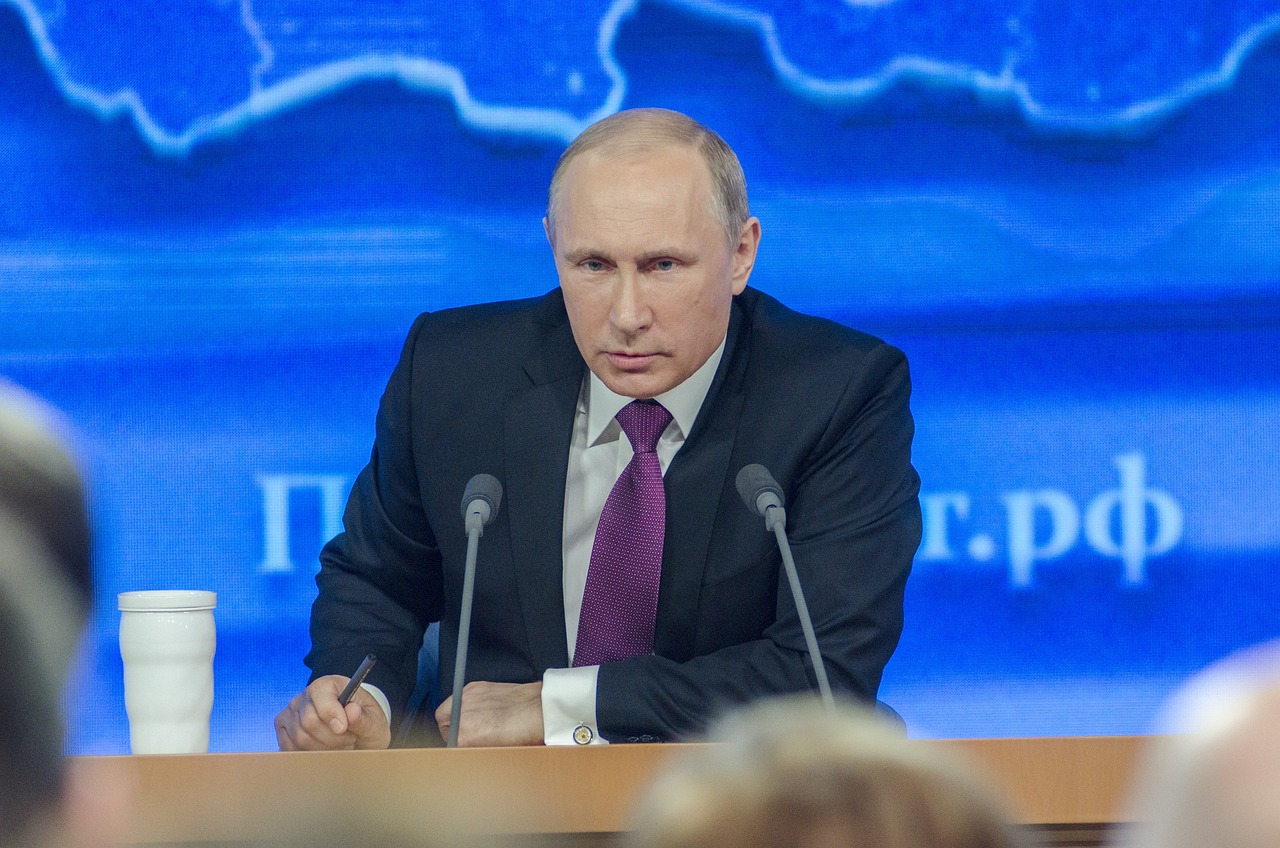
The Responsibility of Tech Companies
The digital age has ushered in a new era of political engagement, and with it comes a hefty responsibility for tech companies. These platforms are not just mere facilitators of communication; they have become the very arenas where political discourse unfolds. As such, they wield significant power over what information is disseminated and how it is perceived. This power raises pressing questions: What ethical obligations do these companies have to ensure a fair political landscape? And, how can they balance freedom of expression with the need to curb misinformation?
To understand the weight of this responsibility, we must first recognize the role tech companies play in shaping public opinion. Algorithms that determine what content users see can create echo chambers, where individuals are only exposed to viewpoints that reinforce their own. This not only polarizes political beliefs but also stifles healthy debate. Consequently, tech companies must grapple with the implications of their algorithms and consider implementing measures that promote diverse perspectives.
Moreover, the responsibility of tech companies extends to the moderation of content on their platforms. With the rise of misinformation, especially during critical political events, these companies must take proactive steps to identify and mitigate false narratives. This involves not only investing in advanced technologies to detect misleading content but also employing human moderators who understand the nuances of political discourse. Ultimately, the goal should be to create an environment where users can engage with trustworthy information and participate in informed discussions.
In addition to content moderation, transparency is another cornerstone of corporate responsibility. Users should be aware of how their data is being used, especially when it comes to political advertising. Tech companies must commit to transparency in their algorithms and advertising practices, allowing users to understand why they see certain political ads and how their personal data influences these decisions. This transparency can help build trust between users and platforms, fostering a healthier political environment.
Furthermore, tech companies must also consider their role in protecting user privacy. As political engagement increasingly moves online, the potential for data exploitation rises. Companies should prioritize user consent and privacy rights, ensuring that individuals have control over their personal information. This not only protects users but also upholds the integrity of democratic processes.
In summary, the responsibility of tech companies in the realm of political engagement is multifaceted. They must navigate the complexities of content moderation, algorithm transparency, and user privacy while fostering an environment conducive to healthy political discourse. As we move forward in this digital age, the actions of these companies will undoubtedly shape the future of political philosophy and engagement.
- What role do tech companies play in political discourse? Tech companies provide platforms for communication and information sharing, influencing how political ideas are disseminated and debated.
- How can tech companies combat misinformation? They can invest in technology and human moderators to identify false narratives and promote accurate information.
- Why is transparency important for tech companies? Transparency builds trust with users and helps them understand how their data is used, particularly in political advertising.
- What are the ethical implications of data privacy in political advertising? Companies must ensure user consent and protect privacy rights to maintain the integrity of democratic processes.

The Future of Political Philosophy in the Digital Age
The rapid evolution of technology has not only transformed our daily lives but has also significantly reshaped the landscape of political philosophy. In this digital age, the interplay between technology and politics presents both exciting opportunities and daunting challenges. As we look to the future, we must consider how concepts of identity, power, and governance will adapt in response to the internet's pervasive influence.
One of the most pressing questions is how the nature of identity is evolving in an online world. With social media platforms allowing individuals to curate their personas, we see a shift from traditional, community-based identities to more fluid, digital identities. This raises intriguing questions: How does this affect our sense of belonging? Are we losing touch with our local communities as we engage more in global conversations? The answer may lie in the balance we strike between our online and offline selves.
Moreover, the concept of power is undergoing a transformation. Traditionally, power was concentrated in the hands of a few—governments, media moguls, and influential thinkers. However, the internet has democratized access to information, allowing a wider array of voices to be heard. This shift can be empowering, but it also leads to the rise of populism and the potential for misinformation to spread like wildfire. As political philosophers, we must grapple with these dualities: How do we harness the power of the internet for good while mitigating its risks?
In terms of governance, the digital age presents a unique set of challenges. The speed at which information spreads can outpace traditional governmental responses, leading to a disconnect between public sentiment and policy-making. To navigate this new terrain, we must embrace innovative approaches to governance that incorporate digital tools. For instance, we can utilize data analytics to gauge public opinion more accurately or employ online platforms for direct citizen engagement, fostering a more participatory democracy.
As we forge ahead, the integration of technology into political philosophy will necessitate a re-examination of ethical considerations. Questions surrounding data privacy, consent, and the manipulation of public sentiment through targeted advertising are becoming increasingly relevant. We must advocate for frameworks that protect individual rights while promoting transparency in how political messages are disseminated online.
In conclusion, the future of political philosophy in the digital age is a complex tapestry woven from the threads of technology, identity, power, and governance. As we navigate this new frontier, it is crucial for scholars, policymakers, and citizens alike to engage in meaningful discussions about the implications of our digital lives. By doing so, we can ensure that the evolution of political thought reflects the realities of our interconnected world, paving the way for a more inclusive and equitable future.
- How is technology changing political philosophy? Technology is reshaping political philosophy by altering our understanding of identity, power, and governance, leading to new ethical considerations.
- What are the risks associated with digital political engagement? Risks include the spread of misinformation, data privacy issues, and the potential for echo chambers that polarize political beliefs.
- How can we ensure ethical online political engagement? Advocating for transparency, protecting data privacy, and promoting diverse voices in digital spaces are essential for ethical engagement.
- Will traditional political structures survive in the digital age? While traditional structures may adapt, they will likely coexist with new forms of governance that leverage technology for greater citizen participation.
Frequently Asked Questions
- How has the internet changed political philosophy?
The internet has completely transformed political philosophy by reshaping how we understand democracy, governance, and public discourse. It has introduced new ways for individuals to engage with political ideas and participate in discussions, making it easier for diverse voices to be heard. This digital age has created a platform for innovative thought, challenging traditional political structures and encouraging a more participatory approach to governance.
- What role does social media play in political discourse?
Social media acts as a powerful catalyst for political discourse, enabling rapid sharing of ideas and mobilization of grassroots movements. It allows users to engage directly with political issues, share their opinions, and influence public sentiment. This instant connectivity has not only democratized information but has also created echo chambers that can polarize opinions, making it essential to navigate these platforms thoughtfully.
- What are the opportunities and challenges of digital democracy?
Digital democracy presents exciting opportunities, such as increased access to information and enhanced participation in political processes. However, it also brings challenges like the spread of misinformation and the digital divide, which can hinder equitable participation. Balancing these opportunities and challenges is crucial for a healthy democratic environment in the digital age.
- How do hashtags influence political mobilization?
Hashtags serve as powerful tools for raising awareness and organizing political movements. They create a sense of community and urgency, allowing activists to rally support quickly. By connecting individuals around common causes, hashtags can amplify messages and drive significant social change, demonstrating the collective power of digital communication.
- What ethical concerns arise from online political engagement?
As political engagement shifts online, several ethical concerns emerge, particularly around privacy, consent, and the manipulation of public sentiment. The use of personal data for targeted political advertising raises questions about privacy rights and the ethical implications of influencing voter behavior based on online activity. Addressing these concerns is vital for maintaining trust in digital political processes.
- What responsibilities do tech companies have in political discourse?
Tech companies play a significant role in regulating political content on their platforms, which raises questions about their responsibilities. They must ensure that their platforms promote fair and transparent political discourse while combating misinformation and harmful content. This responsibility is crucial for fostering a healthy democratic environment where diverse opinions can coexist.
- What does the future hold for political philosophy in the digital age?
The future of political philosophy will be shaped by ongoing technological advancements and their impact on identity, power, and governance. As the internet continues to evolve, political philosophy must adapt to address these emerging issues, ensuring that it remains relevant in an increasingly interconnected world. This evolution will likely lead to new frameworks for understanding political engagement and participation.





